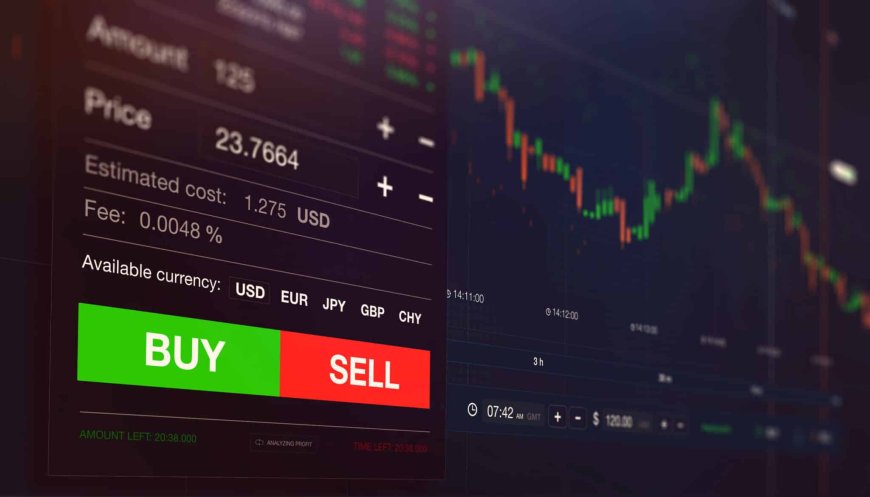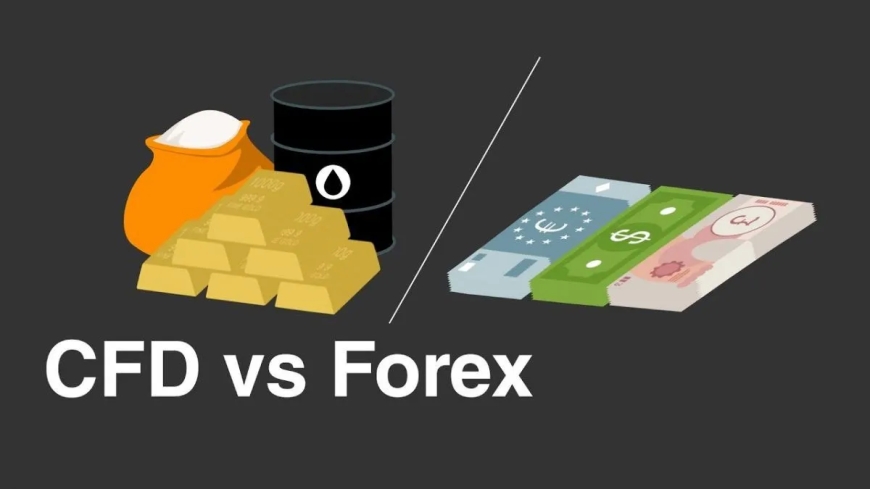The Main Differences Between CFD Trading and Forex Trading
Trying to figure out the differences between CFD trading and forex? If so, keep reading to know their main differences!

Many people who venture into online trading come across two popular markets: CFD trading and Forex trading. While both offer the opportunity to trade in various financial instruments and the potential for profit, they differ significantly in structure, purpose, and strategies. For those considering which market suits their needs, understanding the differences between these two forms of trading is essential.
What is CFD Trading?
CFD stands for “Contract for Difference,” a type of derivative trading where you speculate on the price movements of assets without owning the underlying asset. With this approach, you can trade on the price movements of stocks, commodities, indices, and more. When you enter a contract, you agree to exchange the difference in value of the asset from the time the position is opened until it’s closed. If your prediction is correct, you’ll earn a profit. However, if the price moves against your prediction, you’ll incur a loss.
What is Forex Trading?
Forex, or foreign exchange trading, involves the buying and selling of currency pairs. The Forex market is the world’s largest financial market, operating 24 hours a day, five days a week. Unlike contracts for differences, Forex trading specifically focuses on currency exchanges, such as trading the euro against the US dollar or the British pound against the Japanese yen. The goal is to capitalize on fluctuations in currency values, which are influenced by factors like economic data, interest rates, and geopolitical events.
Key Differences Between CFD Trading and Forex Trading

1. Asset Variety
The most apparent difference between contracts for differences and Forex trading is the range of assets you can trade. Contracts for differences offer access to a wide array of assets, including stocks, commodities, indices, and cryptocurrencies. This variety allows for a diversified trading experience, where traders can speculate on multiple markets. Forex trading, on the other hand, is limited to currency pairs. While this may seem restrictive, Forex trading’s narrow focus allows traders to become highly specialized in currency markets.
2. Market Dynamics and Influences
Another difference lies in the factors that influence price movements. For contracts for differences, the price of each asset is affected by various factors. For example, stock prices can change due to company earnings, while commodity prices may fluctuate based on supply and demand. Forex trading, however, is primarily influenced by macroeconomic factors like interest rates, inflation, and geopolitical events.
These differences mean that strategies for one market may not always translate to success in the other, as each has unique influences.
3. Trading Hours
Both contracts for differences and Forex trading offer flexibility, but there are distinctions in trading hours. Forex trading is conducted 24 hours a day, from Monday to Friday, thanks to global markets operating in different time zones. In contrast, trading hours for contracts for differences depend on the underlying asset. For example, trading on stocks is usually limited to the hours of the stock exchange on which the underlying asset is traded. This can make Forex trading more suitable for those looking to trade outside regular market hours.
4. Leverage and Risk
Leverage plays a significant role in both markets. However, the leverage ratios can differ depending on the asset class in contracts for differences. For instance, leverage for stock contracts might be lower than that for indices or commodities. In Forex trading, leverage ratios are typically higher, allowing for potentially larger trades with a smaller amount of capital. While leverage can amplify profits, it also increases the risk of losses, so both types of traders need to exercise caution when using it.
While CFD and Forex trading share some similarities, the differences between them are important to understand for anyone considering online trading. CFD trading provides the opportunity to diversify across various asset classes, while Forex trading focuses exclusively on currencies. Each market operates under distinct influences and trading hours, which can impact a trader’s strategy and approach. If you’re deciding between these two markets, consider your risk tolerance, trading preferences, and market knowledge to choose the path that best aligns with your financial goals.
What's Your Reaction?


























